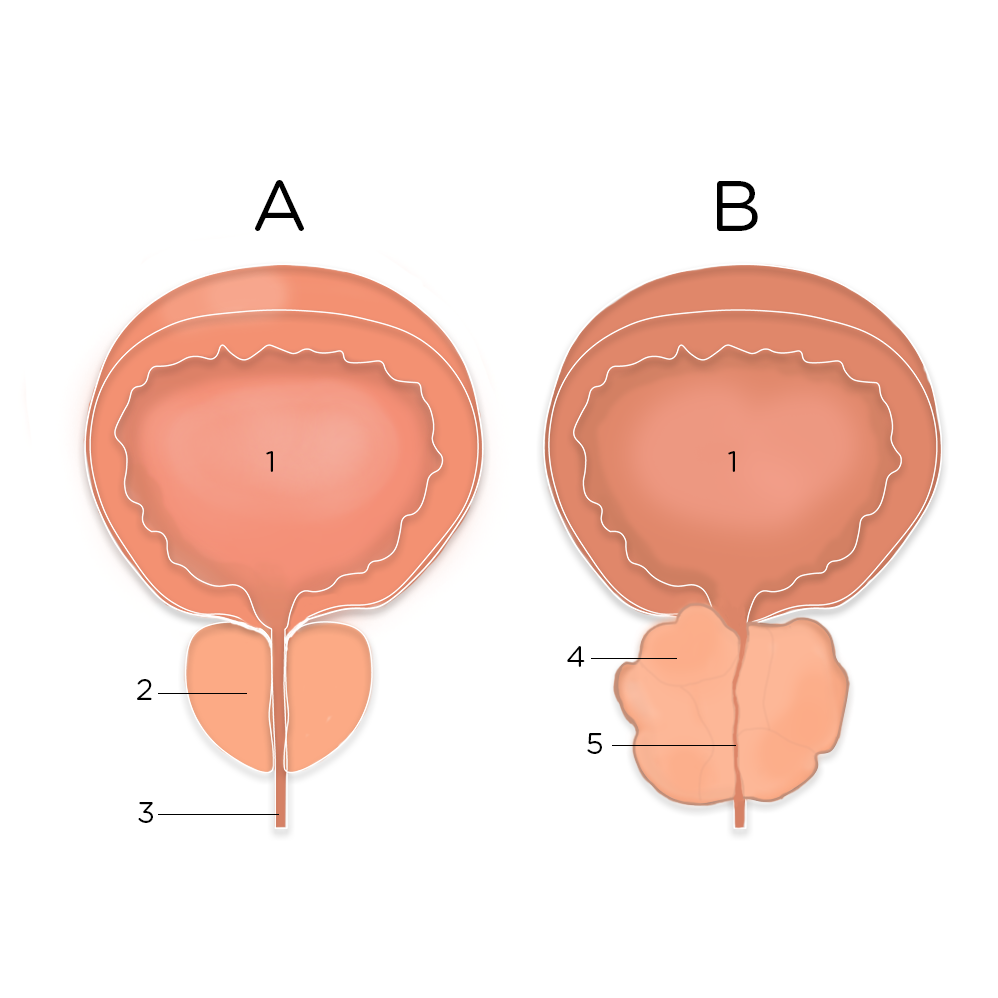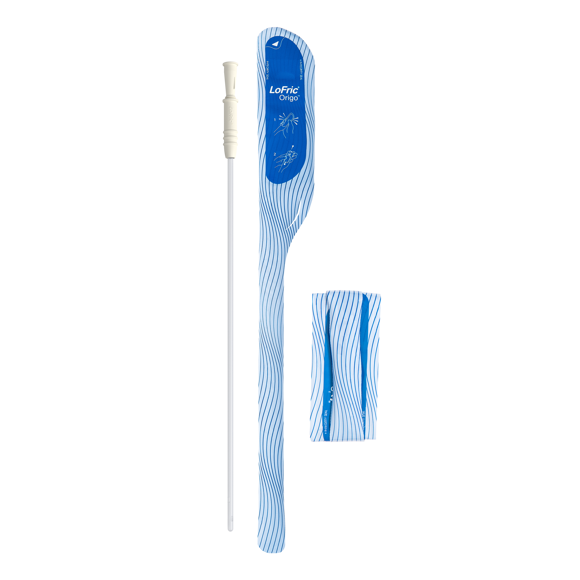
What are Common Enlarged Prostate Symptoms and Treatments?
Have you been experiencing urination problems and are wondering about the cause? Here you can read more about the symptoms of Benign Prostate Enlargement (BPE).
You get a brief overview of what it is, how an enlarged prostate can be treated, and – most importantly – why it’s critical to seek help at an early stage. Use the short links below.
Going To The Toilet Often At Night
Nightly visits to the toilet are something that many men experience with rising age, and it’s a common symptom of Benign Prostate Enlargement (BPE).
Other symptoms are a slow or disrupted flow, an urge to urinate often, and even trouble holding it.
You may have one or many symptoms and the signs of an enlarged prostate don’t reveal themselves overnight but happen gradually.
Many Men Live With Enlarged Prostate Symptoms
BPE happens to 50% of all men over 50 years and it gets even more frequent with increasing age. If you are one of them, it’s important to remember that you are not alone, and there is help available.
Many men with symptoms worry that it could be prostate cancer, and might be reluctant to seek help, but BPE and prostate cancer are two completely different conditions.
It may feel reassuring to know that BPE does not develop into prostate cancer. Hopefully a more serious diagnosis can be ruled out after an examination.
What is an Enlarged Prostate?
When the prostate becomes enlarged, it puts pressure on the bladder and the urethra. And if the outlet is obstructed you may find it difficult to start to urinate, feel a frequent need to go to the toilet, and have incomplete bladder emptying, with an increased risk of urinary tract infection.
Why this happens is not completely known, but the balance of hormones in your body changes as you get older, and this may cause your prostate gland to grow. The more severe the symptoms are, the higher the risk of a negative impact on your overall well-being. If the obstruction makes it extremely difficult to urinate – and if left untreated – it can cause serious and permanent damage to the bladder or kidneys.

Image description: A: Normal Prostate B: Enlarged Prostate 1. Bladder 2. Normal prostate 3. Normal urethra 4. Enlarged prostate 5. Compressed urethra
Intermittent Catheterization (IC) Mimics Nature’s Way
If your bladder is holding you back, IC is the second-best way to urinate, as it mimics the natural course of events. IC is an easy technique to learn, and it can be practiced everywhere. You use a disposable catheter, and it only takes a few minutes. It helps you to completely empty your bladder and puts you in control of your own well-being.
It is, in essence, very different from an indwelling catheter which remains in place for many days or weeks while draining urine from the bladder continuously.
Can an Enlarged Prostate Affect a Man Sexually?
-
The Bladder and its Function
Sometimes people living with a serious condition or injury may experience bladder problems as part of their condition. In this section, we look at different conditions and their potential effect on the bladder.

-
Male Bladder Health
We have a vision. All men with bladder problems should be able to improve their quality of life. Intermittent Catheterization (IC) is a great solution for many symptoms and diagnoses, and it doesn’t involve medication or surgery.

-
LoFric Origo - Male
key:global.content-type: Product
User-friendly and safe in a smart package. Specially developed for men, LoFric Origo is foldable to pocket size and easy to carry and use everywhere.
Request sample